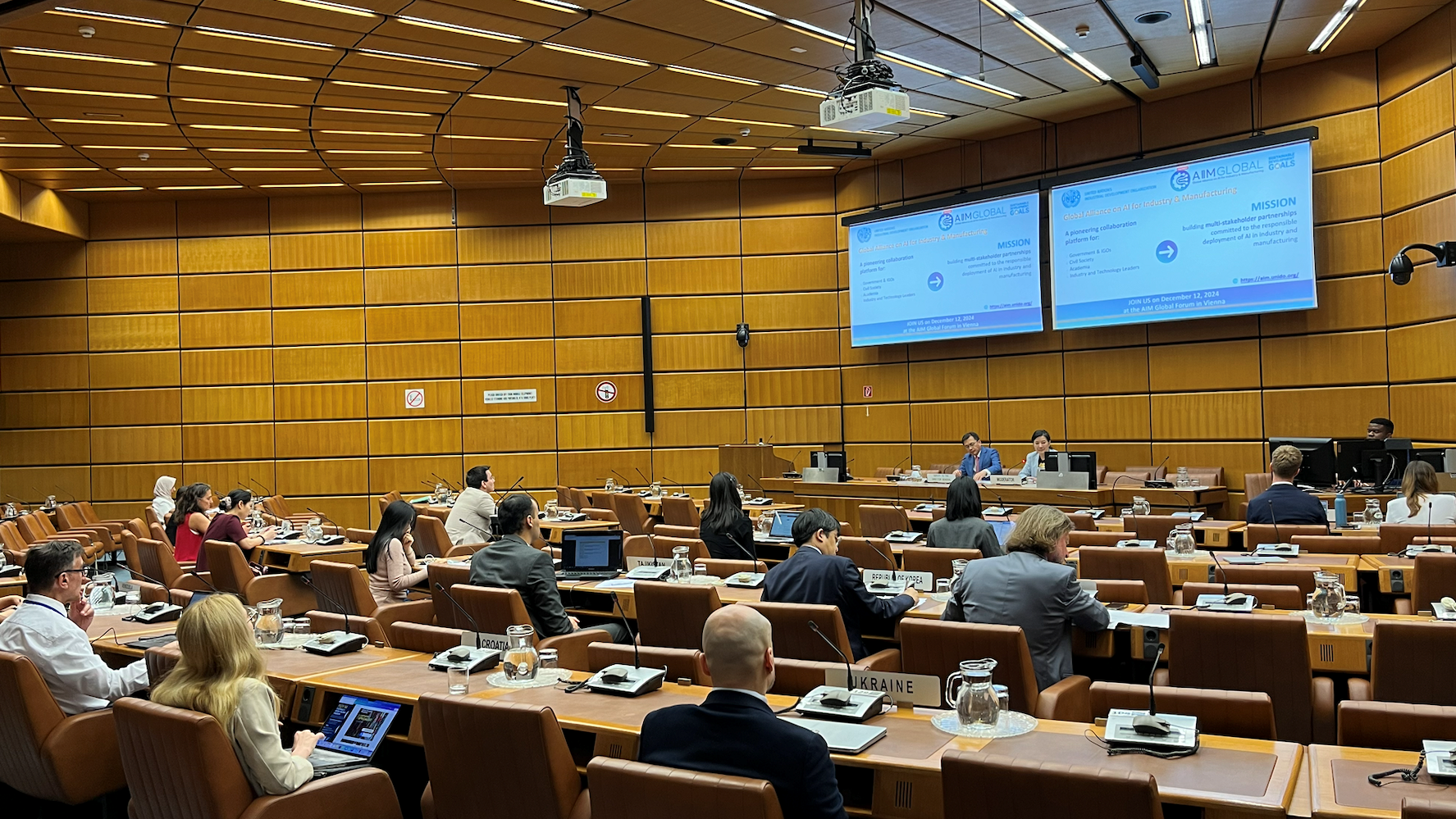Development Dialogue on Digital Transformation and Artificial Intelligence
25 June 2024

Vienna, 25 June 2024 - The Secretariat of the United Nations Industrial Development Organization (UNIDO) held a Development Dialogue on Digital Transformation and Artificial Intelligence (AI). The hybrid event convened representatives from over 60 UNIDO Member States alongside private sector and academia for interactive discussions on key elements of UNIDO's strategic framework for digital transformation and AI.
In his opening remarks, Ciyong Zou, Deputy to the Director General and the Managing Director of the Directorate of Technical Cooperation and Sustainable Industrial Development, stated “UNIDO’s vision is a world where digitally empowered industries bolster prosperous and sustainable economies, inclusive and climate-resilient societies, human well-being and a healthy planet.” He highlighted UNIDO’s expanding portfolio on AI and Industry 4.0 to support Member States to achieve this vision.
Ana Paula Nishio, Chief of UNIDO’s Division for Digital Transformation and Artificial Intelligence, gave spotlight to key initiatives, such as the Global Alliance on AI for Industry and Manufacturing (AIM Global) and the Alliance for Industry 4.0 and Smart Manufacturing in Africa (AISMA) for fostering global multistakeholder collaboration. AIM Global now has members from over 20 member states and delivers knowledge products and capacity building activities. She also announced the first AIM Global Forum scheduled on 12th December 2024, in Vienna.
The Permanent Mission of China expressed strong support for these initiatives, highlighting the upcoming launch of the AIM Global Center of Excellence in Shanghai during the World Artificial Intelligence Conference (WAIC) 2024.
As an active participant in the G20 Digital Economy Working Group (DEWG), the WSIS+20 Forum High-Level Event, and the core group of agencies for the Global Digital Compact, UNIDO brings industrial development perspectives and the voices of developing countries to the global level.
Mbang Sama, a key member of AISMA and lead author of UNIDO’s newly published “Guidelines for the Establishment of a Smart Factory Lab,” provided an insightful overview of Industry 4.0 and smart manufacturing technologies.
Further into the discussion Austria presented its initiative on Digital Humanism, which deals with digital technology development and policies based on human rights, democracy, inclusion, and diversity.
The dialogue addressed the challenges in digital transformation developing countries face, including immature regulatory frameworks, limited technology absorption capacities due to infrastructure and financial constraints, and digital skill gaps impeding innovation and global economic participation.
Success stories from Venezuela, Tunisia, Tajikistan, China, and Cabo Verde demonstrated how national and UNIDO-supported initiatives have leveraged frontier technologies, including AI, to enhance education, improve infrastructure, and drive digital transformation.
Zou closed the session by emphasizing the importance of global engagement and governance in creating a conducive ecosystem for AI development. He advocated for a balanced approach between risk mitigation and opportunities seeking from digitalization and AI adoption.
UNIDO’s efforts will continue to drive the global agenda on digital transformation, aiming for all member states to benefit from advancements in AI and Industry 4.0.
For more information on UNIDO’s work on Digital Transformation and Artificial Intelligence, please contact:
Ana Paula Nishio de Sousa,
Chief, Division for Digital Transformation and Artificial Intelligence,